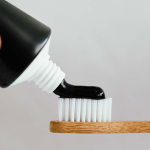Are small doses of psilocybin the answer to boosting work performance? Microdosing is becoming popular for its benefits in focus, creativity, and mood. It could also improve concentration and productivity. If you want to see what other people say, check the microdosify reviews section.
Discovering Microdosing
Microdosing involves taking tiny, controlled amounts of psilocybin mushrooms to enhance cognitive and emotional functions without inducing a full psychedelic experience. The primary goal is to find a dose that delivers noticeable improvements without overwhelming effects.
Reported Advantages of Microdosing
- Enhanced Focus and Attention: Microdosing has been linked to improved concentration, making it easier to stay on task and maintain productivity.
- Increased Creativity: Users often report heightened creative thinking and problem-solving abilities.
- Elevated Energy and Motivation: Many find that microdosing boosts their energy levels and overall drive.
- Better Stress Management: Small doses of psilocybin can help manage stress, leading to a more balanced emotional state.
- Improved Mood: Regular microdosing is associated with a more positive outlook and emotional stability.
Psychedelic advocate Peggy Van de Plassche notes that the appeal of microdosing largely lies in its potential to enhance productivity and mental clarity while reducing stress.
The Science Behind Microdosing
A study conducted by Thomas Anderson and colleagues in 2019 involved over 1,000 participants. The findings revealed that microdosers experienced enhanced emotional responses, greater open-mindedness, and increased creativity compared to non-microdosers. These participants also demonstrated improved convergent and divergent thinking, crucial for effective problem-solving.
Further research by Vince Polito and Richard Stevenson in 2019 with 98 participants indicated that microdosing significantly enhances cognitive flexibility, the brain’s capacity to shift between different thought processes. This flexibility is vital for tackling complex tasks that require both analytical and creative thinking. The activation of serotonin receptors, which play a key role in cognitive functions, is believed to underpin these benefits.
Boosting Focus and Concentration
One of the most commonly reported benefits of microdosing is improved focus. Studies have shown that participants who microdosed exhibited better attention and engagement levels compared to their baseline states.
Key Benefits Noted:
- Greater awareness and mindfulness
- Increased engagement and attentiveness
- Prolonged concentration periods
- Reduced distractibility
- Enhanced absorption in tasks
These improvements can significantly enhance productivity and efficiency, making microdosing a valuable tool for better focus and problem-solving abilities.
Increasing Energy and Drive
Microdosing can also lead to heightened energy levels and motivation. Users often report feeling more energized and driven to complete tasks, contributing to improved work performance.
Notable Changes Observed:
- Elevated emotional well-being
- Enhanced mood
- Boosted motivation
- Overcoming fatigue and burnout
Emotional Balance and Stress Relief
Microdosing’s impact on mental health extends to emotional well-being. Users frequently report reduced anxiety, depression, and stress levels.
A 2011 study by Dr. James Fadiman found that participants who microdosed experienced significant relief from depression and social anxiety. Similarly, Polito and Stevenson’s 2019 study noted that microdosers reported lower anxiety, depression, and stress levels, suggesting that microdosing can enhance emotional balance.
Effective Microdosing Practices
Starting a microdosing regimen requires careful planning and adherence to established protocols to ensure safety and effectiveness. Initial doses should be minimal, with adjustments based on individual responses. Monitoring progress through journaling can help track changes in mood, focus, creativity, and overall well-being.
Popular Microdosing Protocols:
- Fadiman Protocol: Developed by Dr. James Fadiman, this involves taking a microdose every three days to balance benefits and prevent tolerance.
- Stamets Protocol: Created by Paul Stamets, this method involves four days of microdosing followed by a three-day break to promote neurogenesis and mental health.
- Intuitive Protocol: This flexible approach allows individuals to tailor their microdosing schedule to their unique needs.
Conclusion
Microdosing psilocybin is gaining popularity among those looking to boost their cognitive and emotional capabilities. Both scientific research and anecdotal evidence suggest that, when practiced responsibly, microdosing can lead to significant improvements in productivity, work performance, and overall well-being.
Lynn Martelli is an editor at Readability. She received her MFA in Creative Writing from Antioch University and has worked as an editor for over 10 years. Lynn has edited a wide variety of books, including fiction, non-fiction, memoirs, and more. In her free time, Lynn enjoys reading, writing, and spending time with her family and friends.















